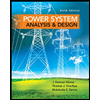(b) A 100 kVA, 2300:230 V, 50 Hz, single-phase transformer has the following parameters: Resistance of the primary (high-voltage) winding: Resistance of the secondary (low-voltage) winding: Leakage reactance of the primary (high-voltage) winding: Leakage reactance of the secondary (low-voltage) winding: Core loss resistance (referred to the primary): Magnetising reactance (referred to the primary): R₁ = 0.25 Ω R₂ = 0.0025 2 X₁ = 0.52 X2 = 0.0052 Ω Rc = 10 k = 2.2 ΚΩ Xm The transformer is delivering full (rated) load at a rated secondary voltage of 230 V and 0.82 power factor lagging. (i) Draw the cantilever equivalent circuit of the transformer (including component values) referred to the primary (high-voltage) side and in which the shunt branch has been moved to the secondary. (ii) Calculate the phasor load current Ĭ2, referred to the primary. (iii) If the transformer is being used as a step-down transformer at the load end of a feeder with impedance Zƒ = (0.4 + j) ₁, calculate the magnitude of the voltage at the sending end of the feeder (Hint: You may ignore the exciting current, and drawing an appropriate phasor diagram may assist your answer.)
(b) A 100 kVA, 2300:230 V, 50 Hz, single-phase transformer has the following parameters: Resistance of the primary (high-voltage) winding: Resistance of the secondary (low-voltage) winding: Leakage reactance of the primary (high-voltage) winding: Leakage reactance of the secondary (low-voltage) winding: Core loss resistance (referred to the primary): Magnetising reactance (referred to the primary): R₁ = 0.25 Ω R₂ = 0.0025 2 X₁ = 0.52 X2 = 0.0052 Ω Rc = 10 k = 2.2 ΚΩ Xm The transformer is delivering full (rated) load at a rated secondary voltage of 230 V and 0.82 power factor lagging. (i) Draw the cantilever equivalent circuit of the transformer (including component values) referred to the primary (high-voltage) side and in which the shunt branch has been moved to the secondary. (ii) Calculate the phasor load current Ĭ2, referred to the primary. (iii) If the transformer is being used as a step-down transformer at the load end of a feeder with impedance Zƒ = (0.4 + j) ₁, calculate the magnitude of the voltage at the sending end of the feeder (Hint: You may ignore the exciting current, and drawing an appropriate phasor diagram may assist your answer.)
Power System Analysis and Design (MindTap Course List)
6th Edition
ISBN:9781305632134
Author:J. Duncan Glover, Thomas Overbye, Mulukutla S. Sarma
Publisher:J. Duncan Glover, Thomas Overbye, Mulukutla S. Sarma
Chapter3: Power Transformers
Section: Chapter Questions
Problem 3.9P
Related questions
Question
100%
please answer all parts of the quesiton with step by step working thank you

Transcribed Image Text:(b) A 100 kVA, 2300:230 V, 50 Hz, single-phase transformer has the following parameters:
Resistance of the primary (high-voltage) winding:
Resistance of the secondary (low-voltage) winding:
Leakage reactance of the primary (high-voltage) winding:
Leakage reactance of the secondary (low-voltage) winding:
Core loss resistance (referred to the primary):
Magnetising reactance (referred to the primary):
R₁ = 0.25 Ω
R₂ = 0.0025 2
X₁ = 0.52
X2 = 0.0052 Ω
Rc = 10 k
= 2.2 ΚΩ
Xm
The transformer is delivering full (rated) load at a rated secondary voltage of 230 V and
0.82 power factor lagging.
(i) Draw the cantilever equivalent circuit of the transformer (including component
values) referred to the primary (high-voltage) side and in which the shunt branch
has been moved to the secondary.
(ii) Calculate the phasor load current Ĭ2, referred to the primary.
(iii) If the transformer is being used as a step-down transformer at the load end of a
feeder with impedance Zƒ = (0.4 + j) ₁, calculate the magnitude of the voltage
at the sending end of the feeder (Hint: You may ignore the exciting current, and
drawing an appropriate phasor diagram may assist your answer.)
Expert Solution
This question has been solved!
Explore an expertly crafted, step-by-step solution for a thorough understanding of key concepts.
Step by step
Solved in 2 steps with 5 images

Recommended textbooks for you

Power System Analysis and Design (MindTap Course …
Electrical Engineering
ISBN:
9781305632134
Author:
J. Duncan Glover, Thomas Overbye, Mulukutla S. Sarma
Publisher:
Cengage Learning

Power System Analysis and Design (MindTap Course …
Electrical Engineering
ISBN:
9781305632134
Author:
J. Duncan Glover, Thomas Overbye, Mulukutla S. Sarma
Publisher:
Cengage Learning